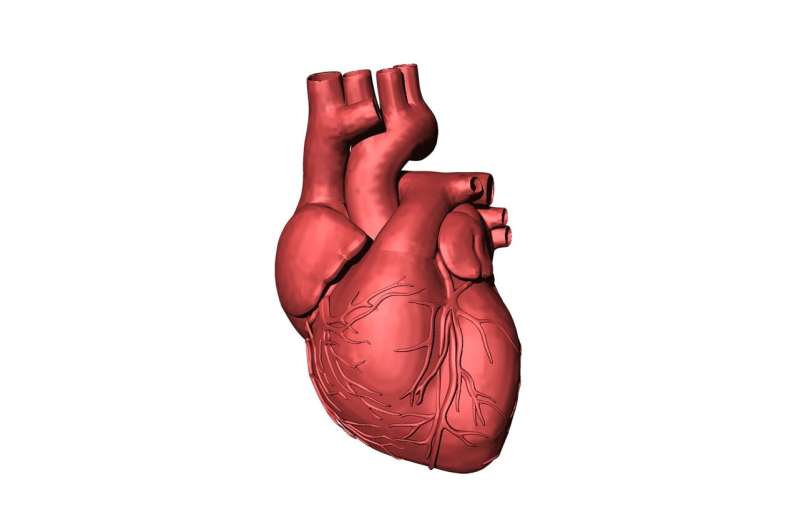Some heart disease patients implanted with a VAD have better survival, more likely to receive a heart transplant

Researchers at the University of Alabama at Birmingham Marnix E. Heersink School of Medicine published a study in Circulation showing that, among ventricular assist device recipients, patients with a particular form of dilated cardiomyopathy known as familial dilated cardiomyopathy have better clinical outcomes compared with other forms of the disease.
Familial dilated cardiomyopathy is a genetic form of heart disease that occurs when the heart muscle in at least one chamber of the heart becomes thin and weakened, making it more difficult for the heart to pump blood as efficiently as usual. Over time, this condition can lead to heart failure.
"Dilated cardiomyopathy affects an estimated one in 250 individuals," said Naman Shetty, M.D., a research fellow in the Division of Cardiovascular Disease and the first author of the paper. "Among these, familial DCM accounts for about half of the DCM cases. The recent increase in the widespread availability of genetic testing has led to an increase in awareness about familial DCM in the community."
Shetty says that many patients with DCM develop end-stage heart failure requiring a specialized device called a ventricular assist device, or VAD, to help transfer blood from the heart to the rest of the body. Prior to this study, Shetty says, it was not known what happens to familial DCM patients receiving a VAD compared with other DCM causes.
The research team analyzed data including more than 20,000 VAD recipients from the Interagency Registry for Mechanically Assisted Circulatory Support to characterize and assess clinical outcomes among familial DCM patients. The extensive follow-up of VAD recipients in the INTERMACS allowed researchers to assess and compare the outcomes of familial DCM patients with other DCM diagnoses.
They found that familial DCM VAD recipients were younger and had about a 30 percent lower risk of death, and a 50 percent higher likelihood of receiving a heart transplant. Additionally, these patients also had a lower rate of adverse events after getting a VAD compared with other DCM diagnoses.
"These findings have major implications for these patients with this inherited cardiac condition," said Pankaj Arora, M.D., the senior author of the paper and director of the UAB Cardiovascular Institute's Cardiogenomics Clinic. "If patients with familial DCM receive a VAD, our research shows that they have favorable outcomes, and many of them can eventually get a heart transplant when compared to other causes of DCM."
Researchers say familial DCM may be caused by a wide range of inherited genetic variations. Arora says diagnosing familial DCM may be challenging since individuals with this genetic variation have varying degrees of severity and it may skip generations.
"Some patients with familial DCM may not develop any symptoms; but they may pass the disease-causing genetic variations to their offspring, which could lead to this disease," Arora said.
"We have also found that certain genetic variations that could lead to this disease are more common in the Black population. By identifying these genetic changes in the patient and their family members, we have an opportunity to reduce racial disparities through earlier access to health care for this condition."
More information: Naman S. Shetty et al, Mechanical Circulatory Support Devices Among Patients With Familial Dilated Cardiomyopathy: Insights From the INTERMACS, Circulation (2022). DOI: 10.1161/CIRCULATIONAHA.122.061143



















